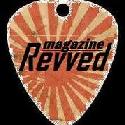
Back almost eight years ago, inspired by some of the greatest groups of the early punk-rock movement, (i.e. Sex Pistols, The Clash, Ramones and the Buzzcocks), 311 formed in the heart of middle America–Omaha, Nebraska. Through three self-produced indie albums and an exhaustive touring schedule that has helped them cultivate one of the most intense (and biggest) “grassroots” fan bases around, the band has managed to maintain their straight-up, melodic hard-core style.
Flash to 1991. 311 trades in nearly two years of hard work and sweat to go with “the man.” Goin’ corporate, if you will. At the time, bandleader Nicholas Hexum says, “We’re going to do what we want to do, and we’re always going to be the people we’ve always been. So, in the long run, I don’t think it makes much difference either way.”

We often talk about how most successful bands in the ’90s have largely set themselves up for the success they now enjoy. The Dave Matthews Band has perhaps become the best example. Through constant touring, releasing projects on their own label and by careful thought, they placed themselves into a position where major labels took notice.

Dave Matthews attacks his acoustic guitar as if he were playing a drum kit. “Percussions are my obsession. In fact, sometimes I see myself as drummer trapped in a guitarist’s body,” states the South African native, who is rarely caught standing still when performing with the Dave Matthews Band.

Dave Matthews attacks his acoustic guitar as if he were playing a drum kit. “Percussions are my obsession. In fact, sometimes I see myself as drummer trapped in a guitarist’s body,” states the South African native, who is rarely caught standing still when performing with the Dave Matthews Band.
A true genius on the acoustic guitar, Matthews really prefers to be viewed more as an ensemble player–a brilliant and yet distinctive instrumental voice, but still just one of the bright threads that help to weave the complex sound of the Dave Matthews Band. The antithesis of the flashy guitar extrovert, Matthews chooses to let his fingers bounce around the fret-board almost as quickly as he dances around the stage. In the end, both the musicians and the audience are witness to the birth of music that is completely fresh and new.

Bon Scott sang the immortal words, “Let there be sound, light, drums, guitars…let there be rock!” As simple as these words might be, I don’t think they were penned with the Internet in mind.
In the beginning, back in 1986, a small Rock station in Long Beach, California, signed on the air, in an effort to satisfy the city’s insatiable hard rock appetite. Then it came to pass in 1995 that that little ol’ rock & roll show packed up its “Pure Rock” format and bid a fond farewell to the airwaves, leaving a hard rockin’ legacy that went far beyond its 3,000 watt reach.

The birth of Gov’t Mule began when Warren Haynes and Allen Woody sought an outlet to jam outside of the Allman Brothers. With the addition of Matt Abts, who played with Haynes in the Dickey Betts band, the trio was complete. “They’re a reckless rhythm section,” Haynes says of the other two. “They’re like an earthquake with an ‘on/off’ switch. When you’re improvising, a big part of it is how deeply you listen. These guys take up space, but in a very meaningful way. That’s what a trio is all about.”

The scenario: a dark, crowded, hot and sweaty theater in Hollywood. The venue is stuffed to the gills; the audience is waiting for the first band to begin. A young lady standing next to me whispers in my ear, “I drove all the way from San Diego to see this show. I think Art Alexakis and Everclear are just awesome.” With a simple smile, I lean back and casually tell her that she’s in for quite a pleasant surprise. Complementing this bill is Toronto’s Our Lady Peace, out in support of their second album, Clumsy. As the quartet begins “Automatic Flowers,” the unassuming concertgoers start to move as one collective unit to the mesmerizing beat. Longhairs and buzz-cuts, leather jackets and suits all move to the sound of this one band. As the set ends, the young lady thanks me for the good advice, and asks that I refresh her memory as to the name of the band. I happily respond: Our Lady Peace!

Resilience and faith are two commodities that are essential in today’s fast-paced life. “The name Jars Of Clay” states Charlie Lowell, keyboard and vocalist for the band, “comes from scripture. ‘But we have this treasure in jars of clay to show that this all-surpassing power is from God and not from us’ (II Cor. 4:7). That one verse describes exactly the picture we are trying to communicate.” Once just a group of friends sharing a common faith and inspiration to make music, Jars Of Clay have begun a movement to bring religious music into the mainstream.

Over the course of the last 20 years, Ric Ocasek has been one of alternative rock’s most revered pioneers. His work with the Cars, the various side and solo projects, and even his poetry have kept him front and center in the music world–even when he’s not writing or producing. He’s had enormous triumphs as well as a few falls. If he has an opinion on a particular subject, he speaks his mind freely, directing pointed barbs at any detractors, rarely apologizing for anything.

Over the course of the last 20 years, Ric Ocasek has been one of alternative rock’s most revered pioneers. His work with the Cars, the various side and solo projects, and even his poetry have kept him front and center in the music world–even when he’s not writing or producing. He’s had enormous triumphs as well as a few falls. If he has an opinion on a particular subject, he speaks his mind freely, directing pointed barbs at any detractors, rarely apologizing for anything.






















 Welcome to Michael D. Vogel’s online portfolio. I am a Los Angeles-based music journalist/content creator, and self-professed music-fanatic/radio-aholic. With more than 20 years of experience in multiple facets of the music industry including; music programming/air talent for terrestrial and internet radio as well as record label artist promotion, I have a finger on the pulse of what's new and under the radar in the emerging music scene. Areas of specific expertise include, but not limited to: rock (heritage, mainstream, heavy metal/hard rock and alternative), pop and adult contemporary, as well as radio, pop culture, sports, exercise and politics. I am applying my passion for music as a freelance writer for the Examiner as National Music Examiner (Examiner.com) in addition to West Coast Editor for FreeGotham (FreeGotham.com). Find me at michael@vogelism.com.
Welcome to Michael D. Vogel’s online portfolio. I am a Los Angeles-based music journalist/content creator, and self-professed music-fanatic/radio-aholic. With more than 20 years of experience in multiple facets of the music industry including; music programming/air talent for terrestrial and internet radio as well as record label artist promotion, I have a finger on the pulse of what's new and under the radar in the emerging music scene. Areas of specific expertise include, but not limited to: rock (heritage, mainstream, heavy metal/hard rock and alternative), pop and adult contemporary, as well as radio, pop culture, sports, exercise and politics. I am applying my passion for music as a freelance writer for the Examiner as National Music Examiner (Examiner.com) in addition to West Coast Editor for FreeGotham (FreeGotham.com). Find me at michael@vogelism.com. 